(December 31, 2021) At the crack of dawn, a group of 20 teenage girls are all fired up and ready to go. Clad in shorts and t-shirts, the determined youngsters jog through the densely populated Kalighat locality in South Kolkata into a ground in the Regent Park area. The sudden early morning drizzle hardly bothers them as they line up in front of their “hero” and boxing coach Razia Shabnam. Rigorous warm up and strength training sessions later, they put on their boxing gloves, look straight into their opponent’s eyes, and get down to bouts of sparring. From straight punches to jabs, hooks and even uppercuts — they deliver power-packed punches in each bout — their aggressive side on full display.
Not far away from this place, about 35 girls sweat it out in the makeshift boxing ring at the Kidderpore school of physical culture at Ekbalpore, where their coach Mehrajuddin Ahmed aka Cheena Bhai, is busy evaluating their boxing prowess and fine tuning it. “Duck! Avoid the opponent’s punches!” he advises as he keenly watches the sparring which goes on for hours.
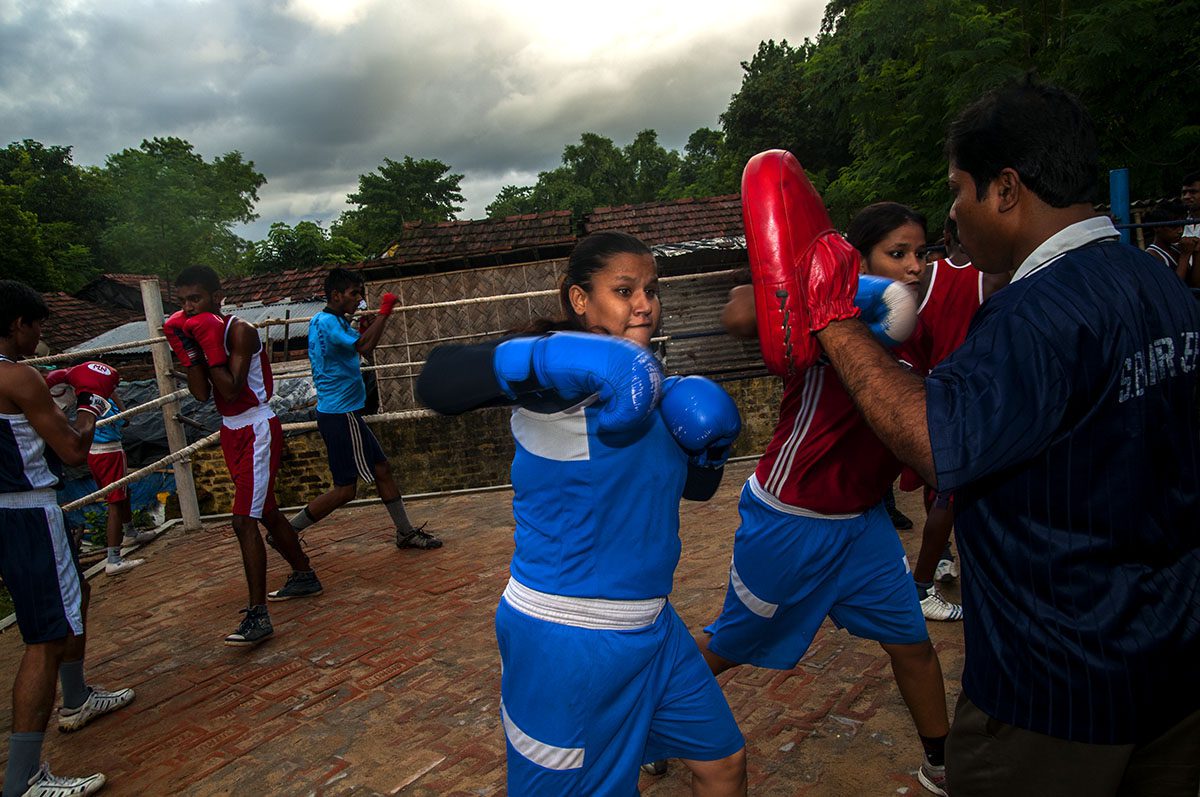
Shakeela and Shanno practise at the boxing yard; Photo Courtesy: Arindam Mukherjee
The women, they are ready for the ring
Women’s boxing arrived a tad late in West Bengal when compared to other states. Finally in 1998, a handful of burqa-clad girls from poor families dared to step out of their homes to learn boxing. Some put on gloves for self-defense, others to boost confidence and self-esteem while the rest were driven by their sheer passion for the sport, and dreams of making it big one day.
There was a time when the “burqa boxers” as they came to be known, braved societal pressures and gender discrimination to pursue the sport. But not anymore. Now, these girls don’t think twice before donning a t-shirt and shorts and sweating it out to deliver the perfect knockout punch!
“Boxing gives the girls self-respect and confidence to break barriers. When I took up boxing, I faced gender discrimination and people in the community treated me like I was doing something wrong and dirty. They expressed apprehensions about my marriage. But the situation is different now. People have become more broadminded and the girls are clear about what they want to achieve,” says a beaming Razia Shabnam, in an exclusive chat with Global Indian.
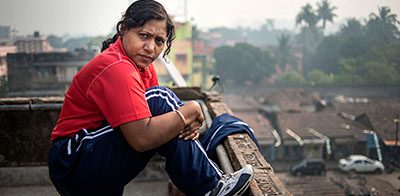
Razia Shabnam exercises at her rooftop; Photo Courtesy: Arindam Mukherjee
Mention burqa boxing and Shabnam interjects that it is gender discrimination rather than religious discrimination that is an obstacle. “Now, there are hardly any girls who come in burqa and change into boxing gear. Those days are gone,” she informs.
Shabnam took to boxing in 1998 when the sport had just opened up for women in Kolkata. A first-year Arts student at Calcutta University, she decided to give boxing a shot, and was lucky to have participated in the national level boxing championship. She went on to become one of the first women boxing coaches in the country in 2001. Shabnam is also the first Indian woman to become an international boxing referee and judge, and has been officiating at international boxing tournaments across the globe. “I was clear that I wanted to become a coach who could train both men and women to fetch gold medals for India,” says Shabnam.
While her journey into the world of boxing came with obstacles, it was her father Rahat Ali Khan, a wrestler, who supported and encouraged his daughter. Having grown up in Kidderpore in a traditional Muslim family, where girls stay home or are groomed for marriage, Shabnam faced discrimination even when she started to go to college. Now, a doting mother, she coaches girls aged 12 to 18, a majority of them rescued from the red-light area in Kolkata. Through her NGO, New Light, she even provides them shelter.
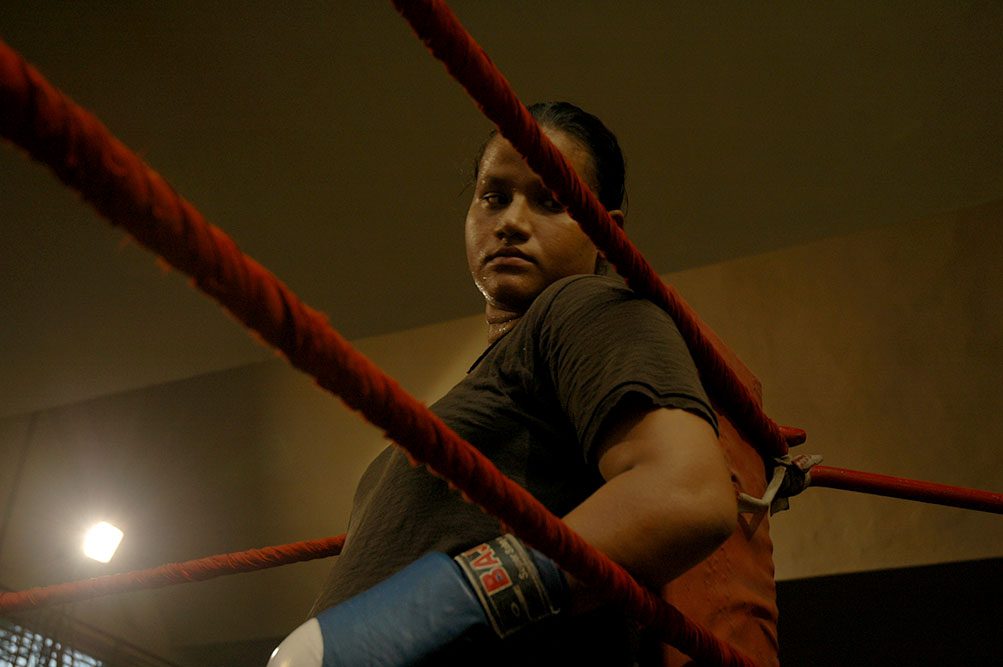
Photo Courtesy: Arindam Mukherjee
Girls who just want to throw punches
“I want to play at the national and international boxing championships and I am preparing for it,” informs Salma Molla, a 15-year-old, who started boxing at age 10. She trains with Shabnam, and wants to follow in the footsteps of boxing great Mary Kom. “My family knows I am passionate about boxing, and are happy. Like Mary Kom, I will compete for India one day,” smiles Salma, who ensures she never misses training.
In 1998, women’s boxing kickstarted in West Bengal. The then-President of the WB Boxing Federation Asit Banerjee along with coaches Mehrajuddin Ahmed, Sujoy Ghosh and Jamil Alam began training girls. What initially started with a handful of “burqa boxers” soon saw the participation of more girls. In the past two decades, hundreds of girls from Kolkata have learnt boxing.
“Back then, a few burqa-clad girls would come to the Kidderpore school to learn boxing. They were obviously worried about what the community would say. But now, I don’t see the girls scared or bothered. They learn boxing without a worry,” says Mehrajuddin Ahmed.
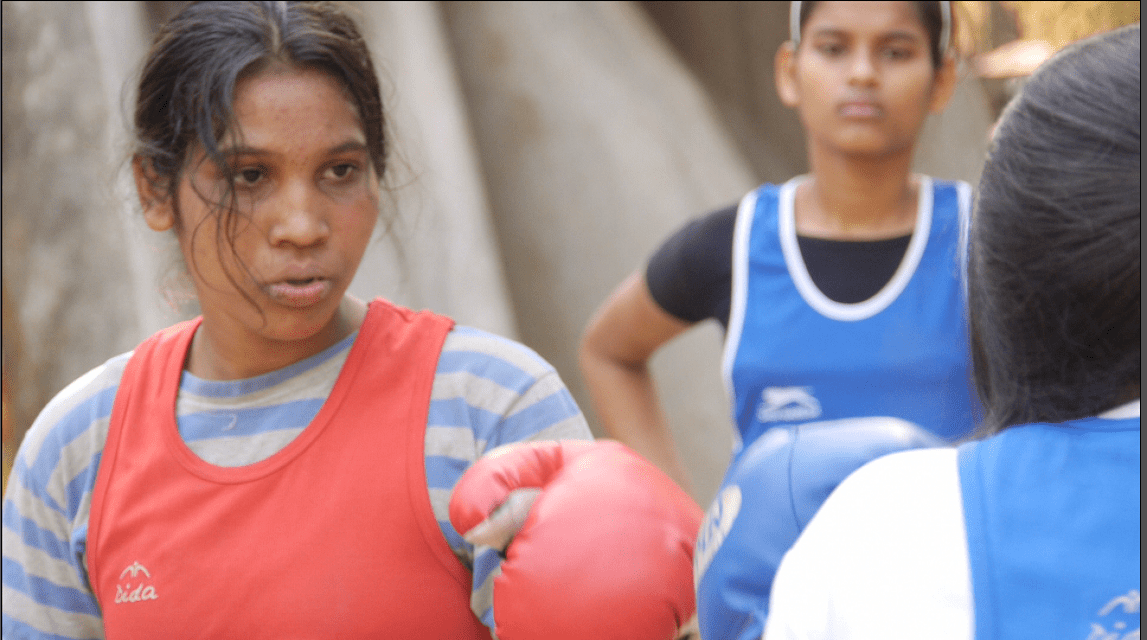
Ajmira Khatun during a practise session; Photo Courtesy: Alka Raghuram
Ahmed, who runs the Kidderpore school, recalls how women’s boxing had arrived in Delhi, Punjab, Manipur and Mizoram early. “The boxing federation president, other coaches and I collectively decided that girls have to learn boxing and started coaching them,” he informs.
He recalls instances when convincing parents was an uphill task. “The girls came from very poor families. Their parents were against boxing. Some felt it was a male bastion, and girls should stay away, others felt it will hinder their marriage prospects. The community elders and neighbours did their bit in discouraging the girls. But I spoke to many families and convinced them otherwise. Many agreed but were sceptical. That is no longer the case. Today, there is nothing stopping them,” he says. Shabnam too has similar stories.
All their efforts have yielded results. There are quite a few girls from Kolkata who have made it big in boxing. Among the notable boxers is Ajmera Khatun, who started in 2009, and went on to win five golds at the state and national level. She is not boxing anymore. Similarly, Sarita Khatun first won a gold medal at a state level championship and subsequently won nine medals including a bronze at the national level in 2012. The same year, Simi Parveen, a soft-spoken Arts student from Kolkata’s Ekbalpore area represented West Bengal and won a bronze medal at the women’s boxing national held in Patna. Thereafter, when the Indian Boxing Federation was suspended by the International Boxing Association, her career came to a stop. She trained at the Kidderpore school. Sabina Yasmeen, another boxer won three golds at district, state and national levels. A majority of the boxers have been trained by Mehrajuddin or Razia Shabnam.
Coaching for glory
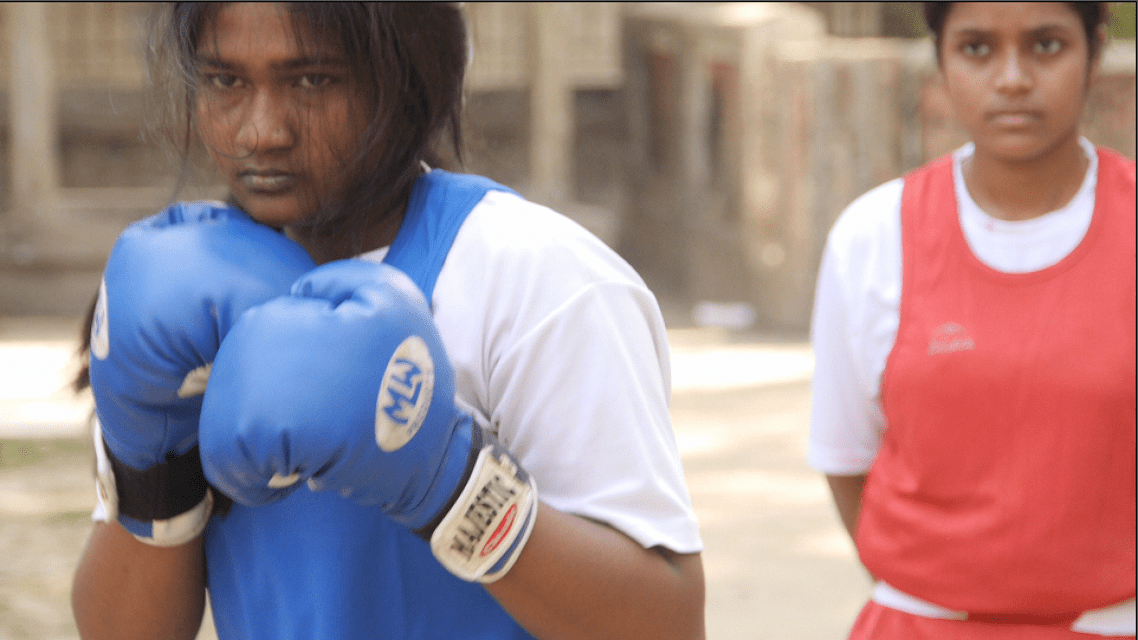
Taslima during a practise session; Photo Courtesy: Alka Raghuram
Presently, Razia Shabnam coaches about 20 girls for three hours on weekdays, and six on weekends. Similarly, at the Kidderpore school, there are 185 youngsters training, of which 35 are girls. The pandemic did play spoilsport in Kolkata’s boxing legacy but the coaches hope for better days.
While the women’s boxing scene in Kolkata appears promising, many at the national level have quit due to marriage or job prospects. Razia Shabnam’s protegee Parveen Sajda gave up the sport after marriage. “Ajmira Khatun (who won the gold at the state and national level) shifted to Haryana. Once they cross a certain age, they give up due to self-sufficiency and work. Yet, going by the enthusiasm and determination of a few girls, I am confident they will make it big in boxing. The situation is changing,” says a hopeful Razia. Besides marriage and jobs, another reason for opting out is the expense. Nonetheless, the number of girls taking to boxing has been increasing steadily.
Interestingly, a documentary titled Burqa Boxers directed by Alka Raghuram, a filmmaker and a multidisciplinary artiste who tries to make sense of the world through her insightful films, gives you a ring side perspective on the lives of the girls. The film weaved the stories of Razia Shabnam, Ajmira Khatun, Taslima Khatun and Parveen Sajda as they negotiate poverty and traditions, and learn to face the biggest obstacle — fear. The film was awarded the top prize Grant Open Doors at the Locarno Film Festival co-production market in 2011.
For boxer Rimpi Khatoon, Razia Shabnam inspires them to take up boxing. “Razia madam is my hero. I took up boxing to boost my confidence and for self-defense. My knockout punches are good, I can give anyone a tough fight,” laughs the 14-year-old, who has been training with Razia since she was 10. Even 16-year-old Pooja Singh is passionate about boxing. “I have been boxing since 2014 and I look forward to participating in the national boxing championship,” says Pooja.



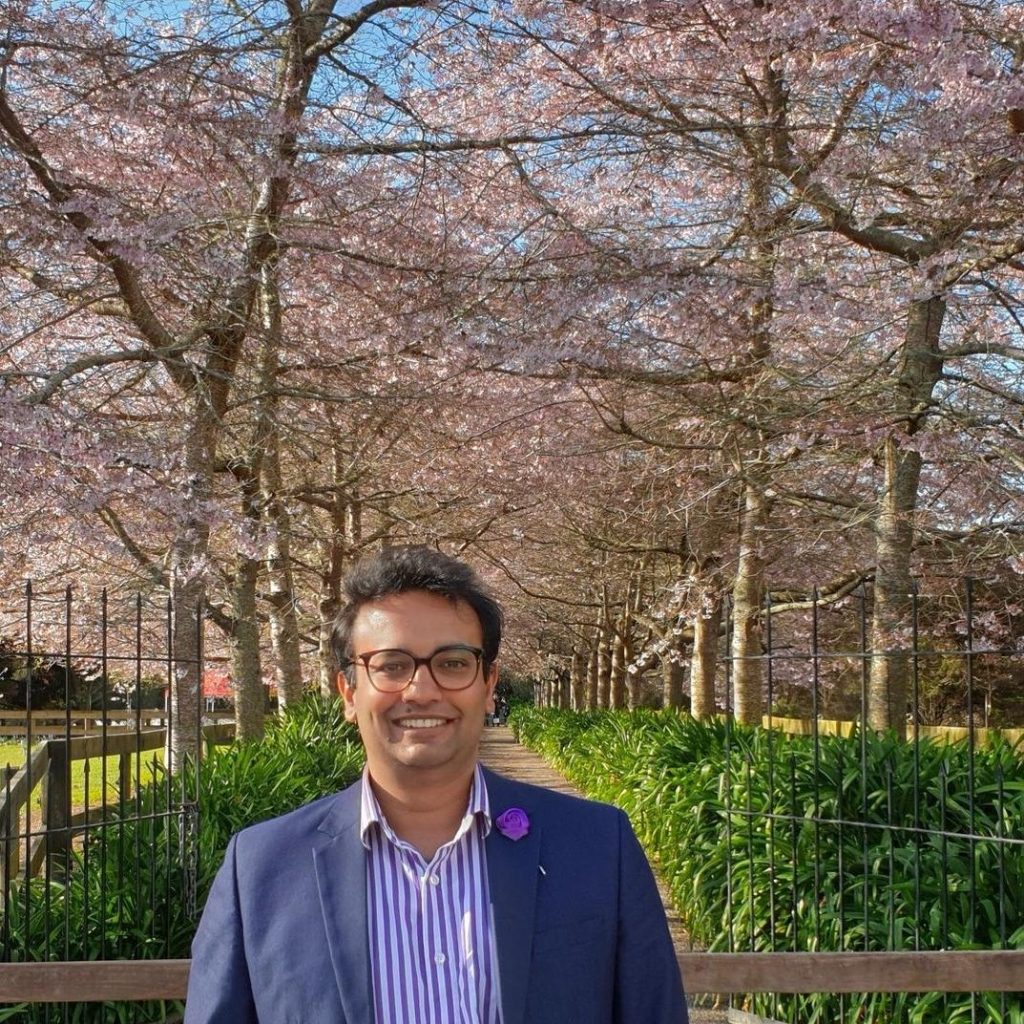
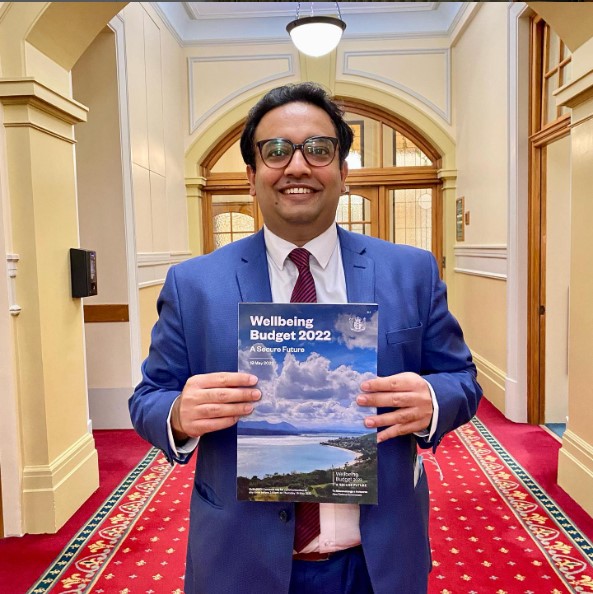
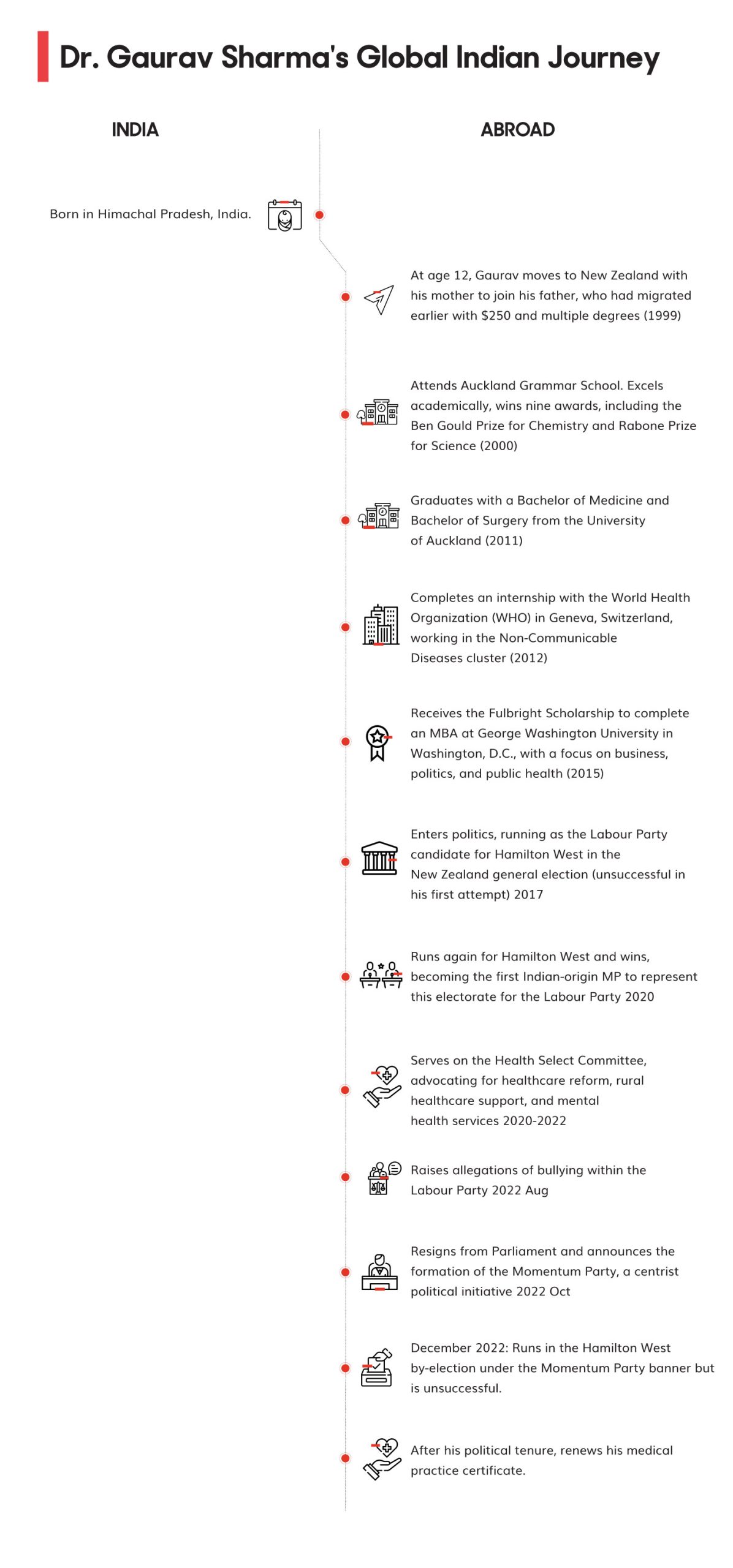
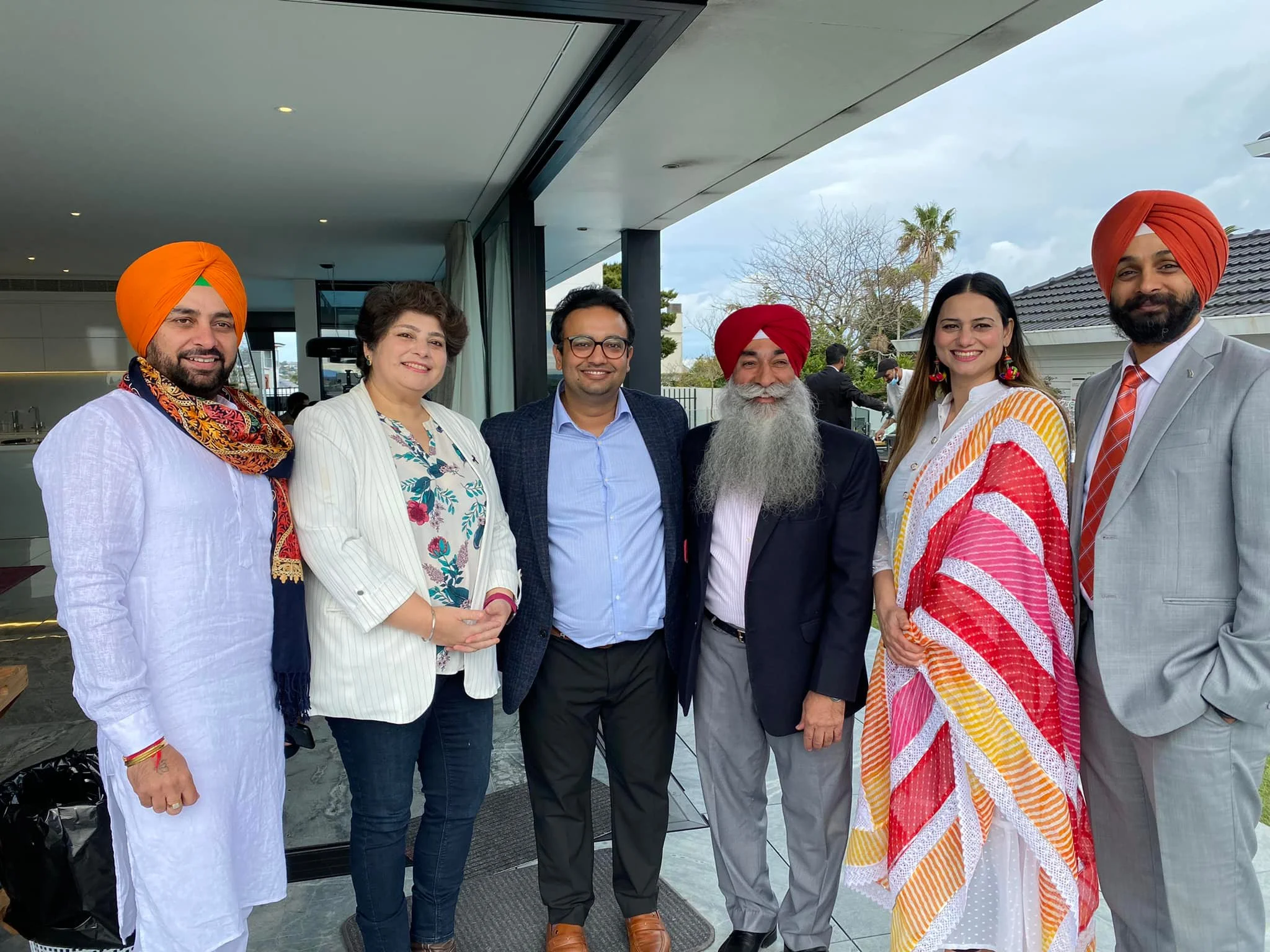
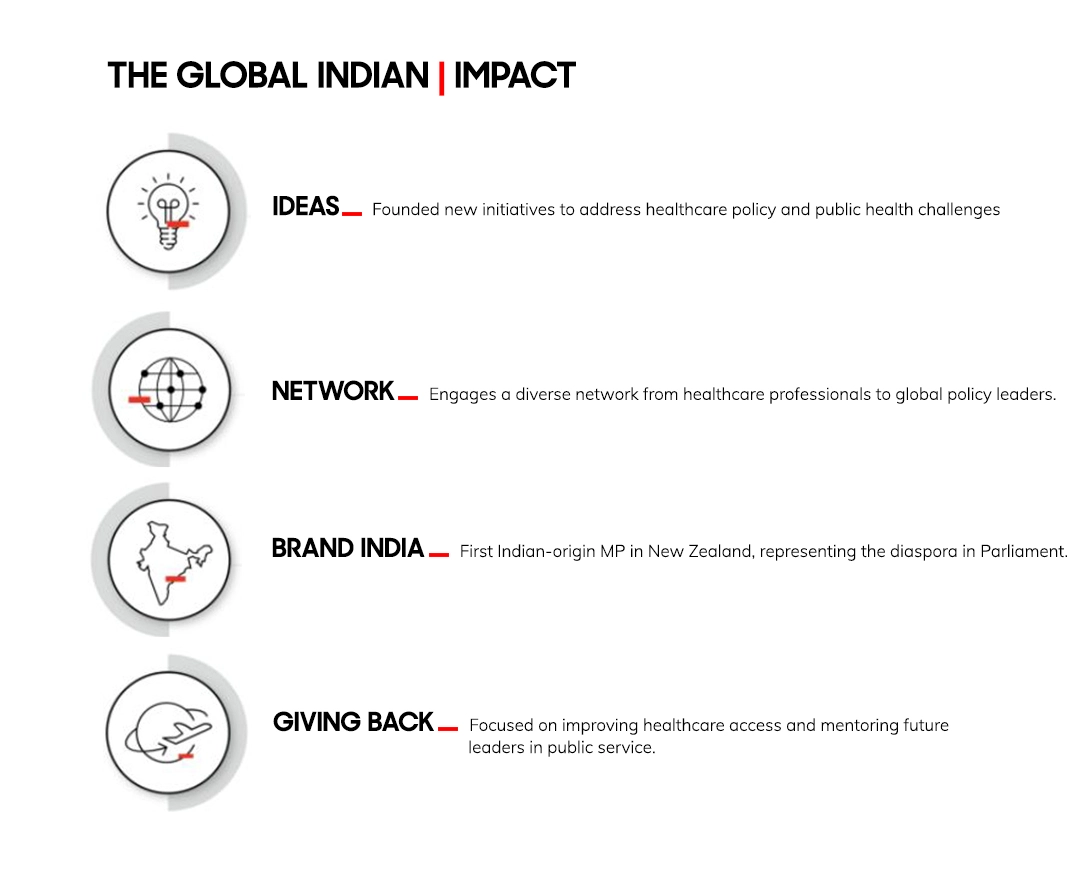

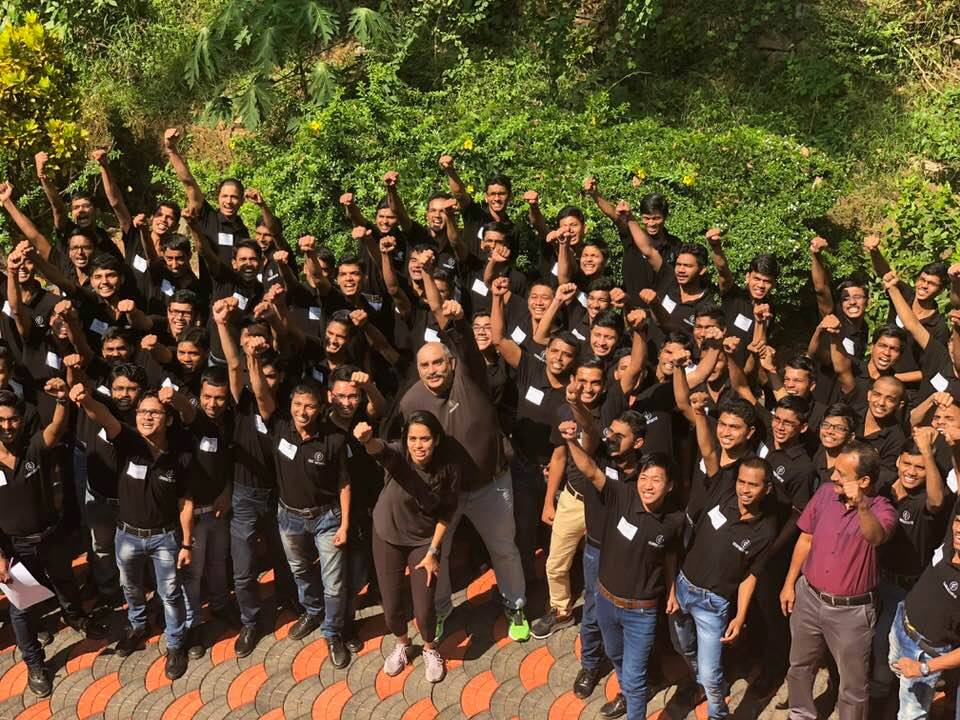 Mohnish Pabrai with Dakshana Scholars[/caption]
Mohnish Pabrai with Dakshana Scholars[/caption]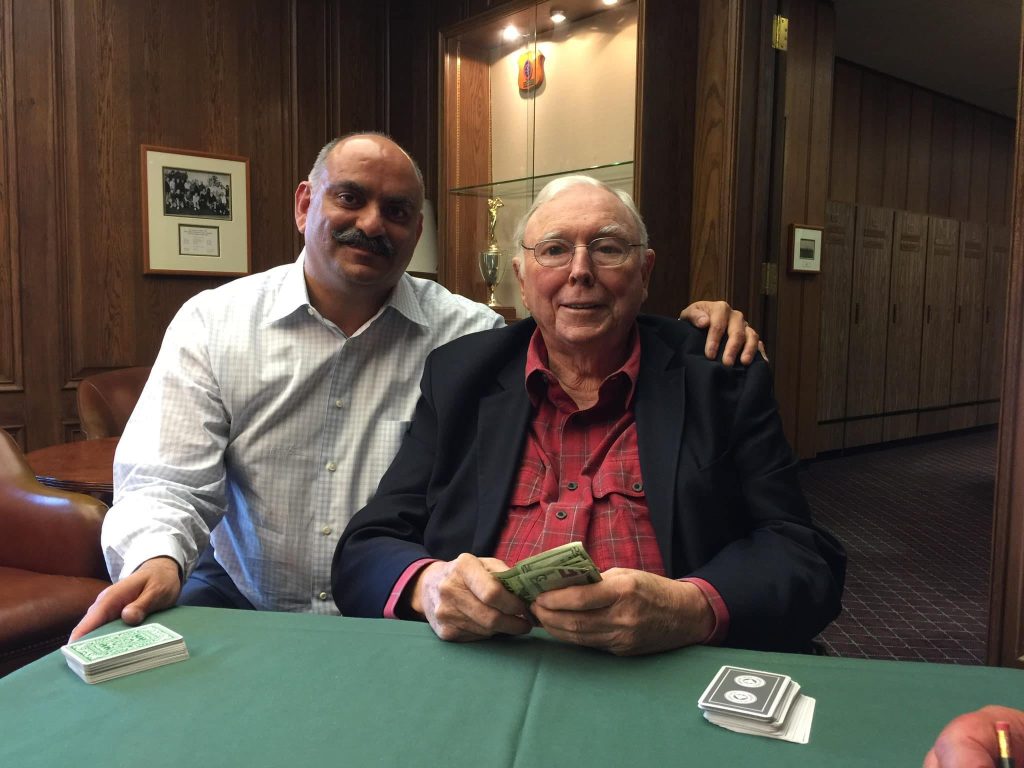 Mohnish Pabrai with Charlie Munger[/caption]
Mohnish Pabrai with Charlie Munger[/caption]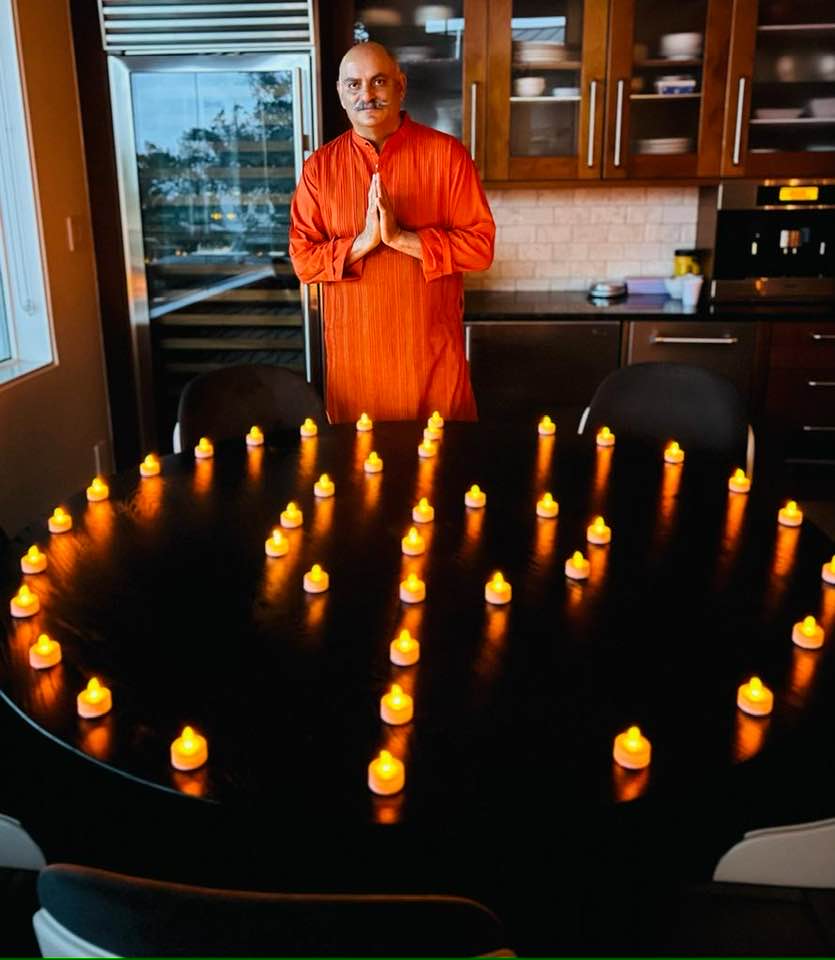

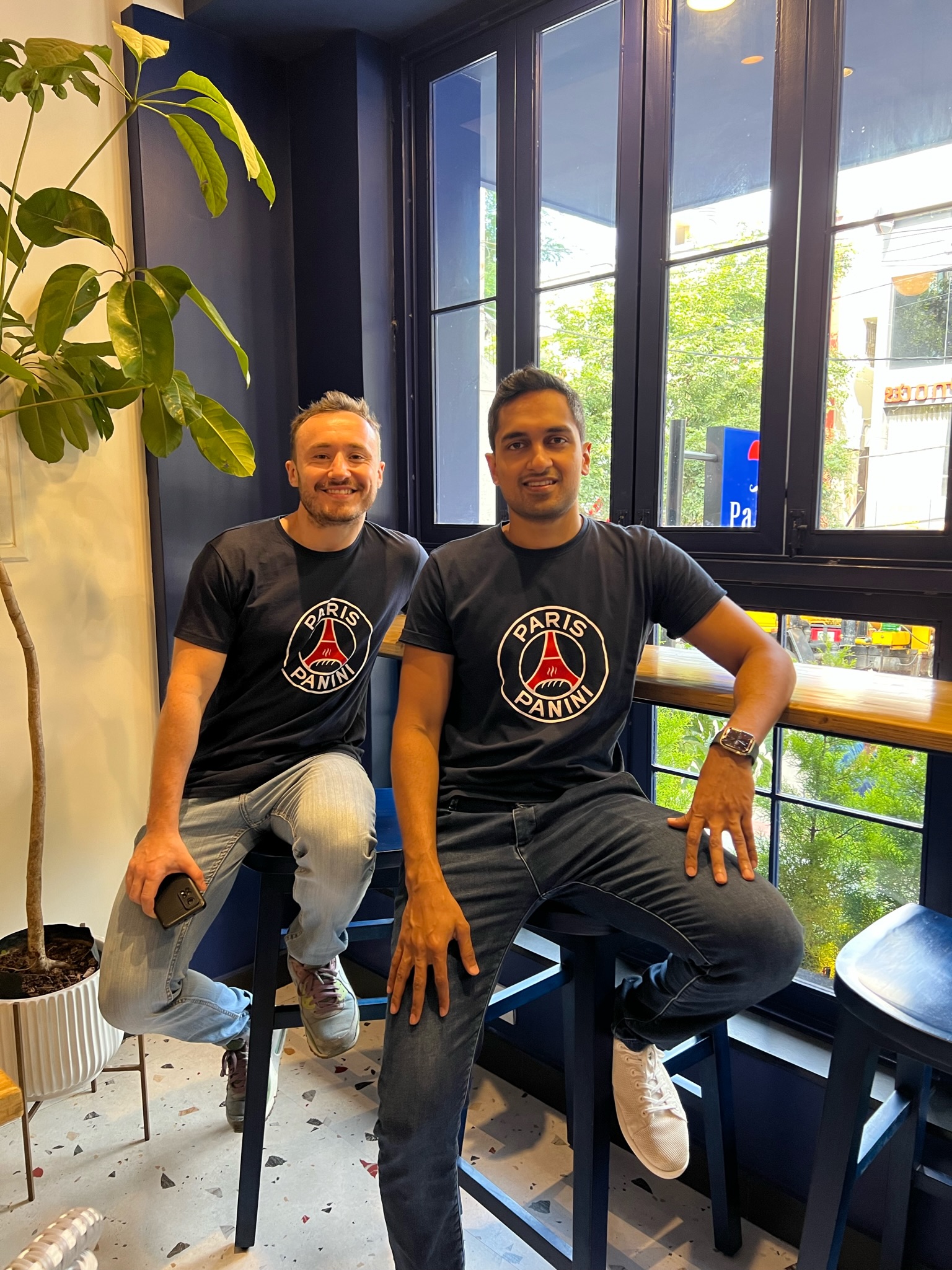 Nicolas Grossemy and Abhijit 'AB' Gupta[/caption]
Nicolas Grossemy and Abhijit 'AB' Gupta[/caption]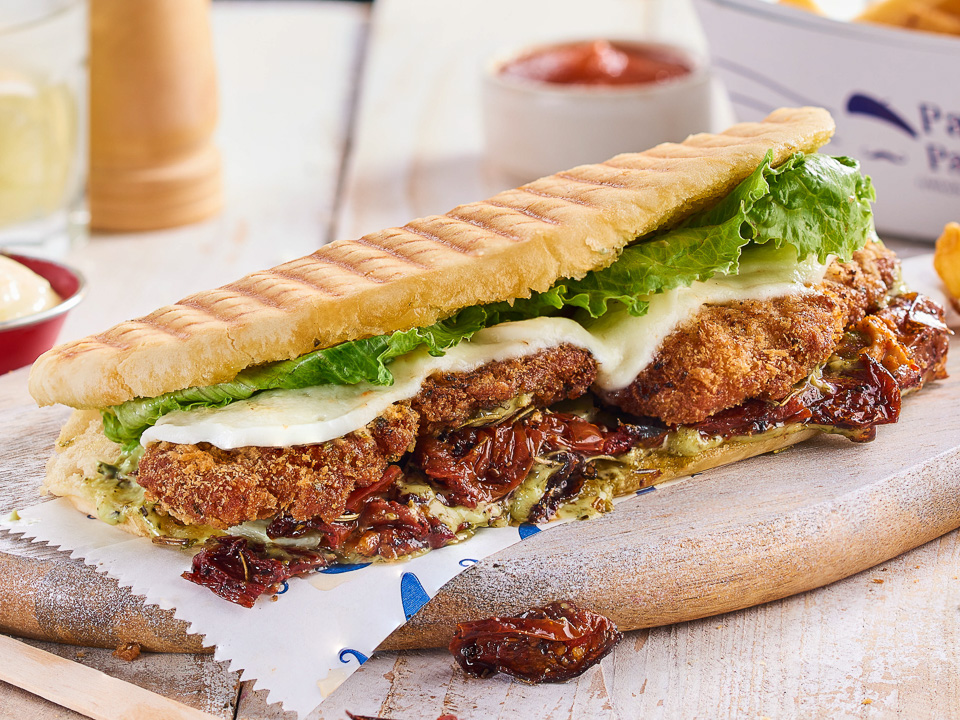 The 'Hugo' (fried chicken, fresh mozzarella, onions, sriracha aioli) at Paris Panini[/caption]
The 'Hugo' (fried chicken, fresh mozzarella, onions, sriracha aioli) at Paris Panini[/caption] The Laura (Mozzarella, basil pesto, sun-dried tomatoes)[/caption]
The Laura (Mozzarella, basil pesto, sun-dried tomatoes)[/caption]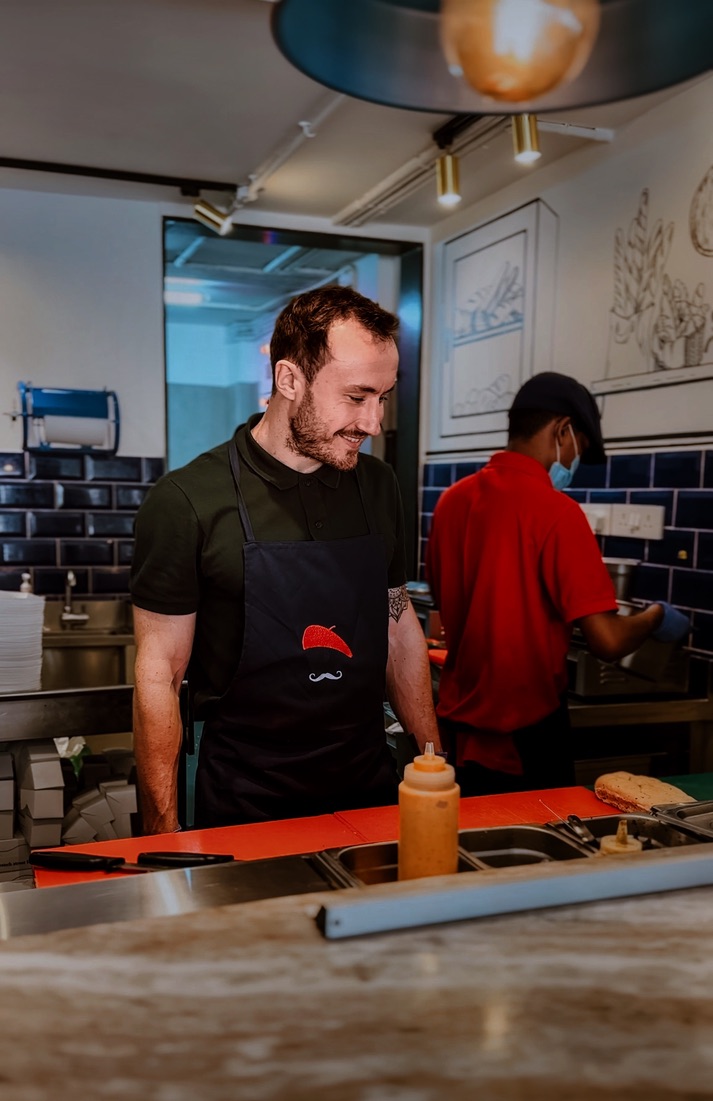

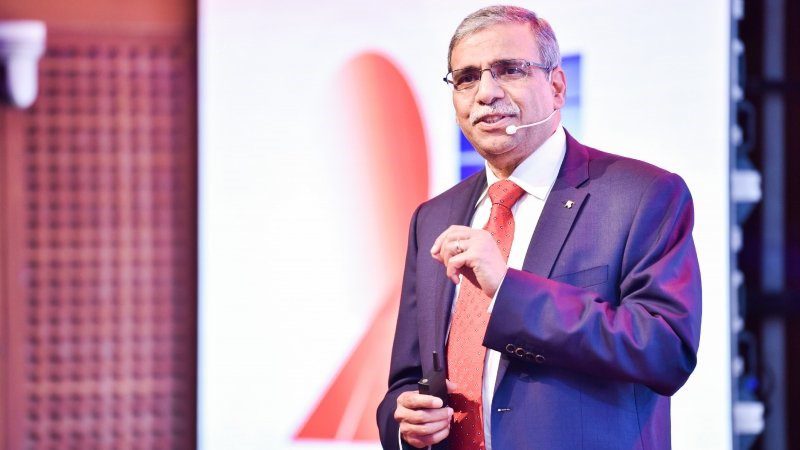 Professor Dipak Jain. Photo:
Professor Dipak Jain. Photo: 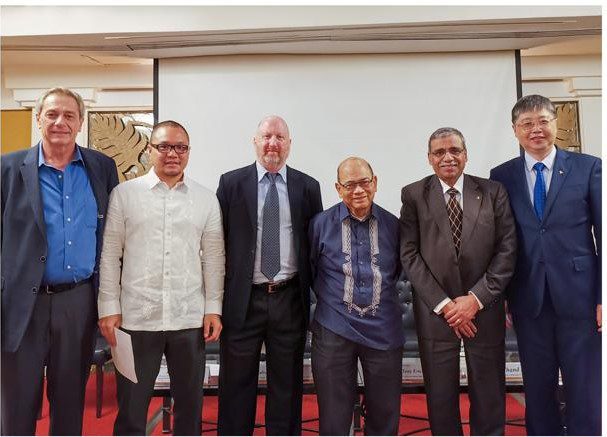 Prof Jain with alumni from CEIBS[/caption]
Prof Jain with alumni from CEIBS[/caption]
 CNC Technics[/caption]
CNC Technics[/caption]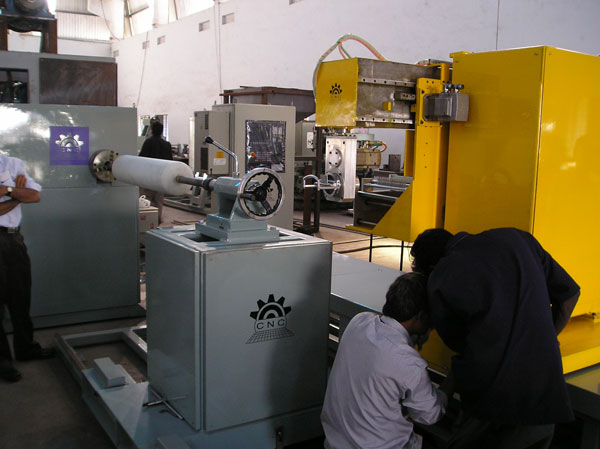 CNC Technics' 6 Axes 1 Spindle winder[/caption]
CNC Technics' 6 Axes 1 Spindle winder[/caption]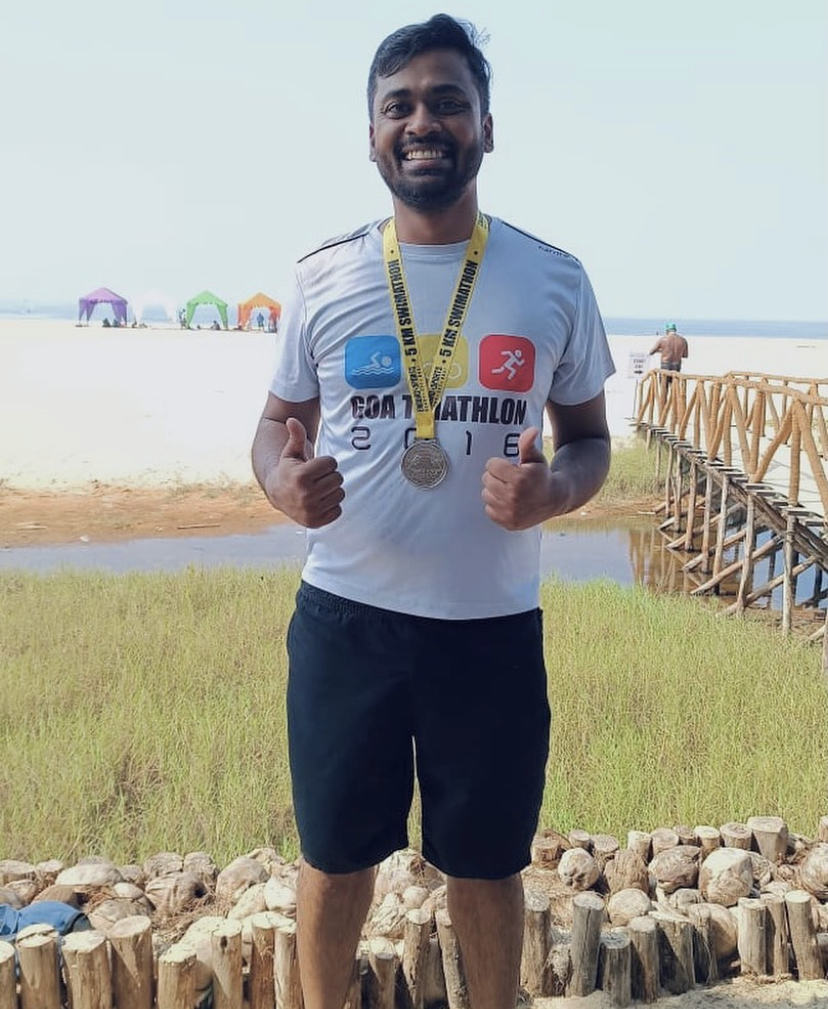 Rohit Bandaru is a fitness enthusiast[/caption]
Rohit Bandaru is a fitness enthusiast[/caption]